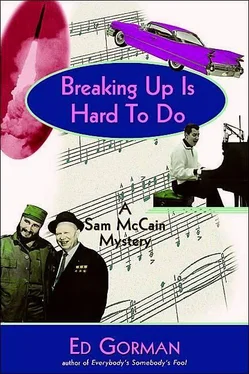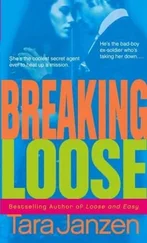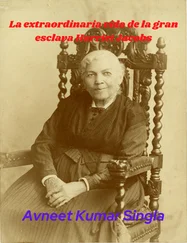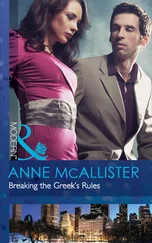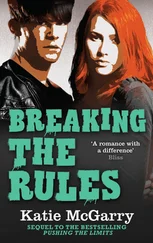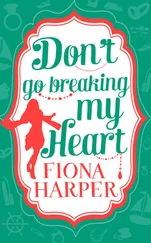“He’s going to need Perry Mason,” Mom said. “That poor woman dead in his bomb shelter.”
“‘Poor woman’?,” Dad said. “I thought you said she was just a prostitute.”
“Well, that doesn’t mean anybody had the right to kill her. She could’ve made a good confession and started her life over again.”
My mom is of the belief that everybody is Catholic. Or secretly wants to be. Or should be. Or will be. Someday. If we just wait patiently long enough.
This time, it was me my dad winked at. “What if she was Methodist?”
“Well, she still could’ve started over. Nobody had the right to kill her.”
“Murdoch must have really panicked,” Dad said. “Leaving her there in that bomb shelter. Say, is that as fancy as everybody says?”
“The bomb shelter?” I said. “It sure is.”
“We’re having another prayer vigil tonight,” Mom said softly. “I’m just asking God that Khrushchev comes to his senses.” She took Dad’s hand. He smiled at her. “We’ve had our lives. It’s the children I’m worried about. They should have their chance to live.” She looked at me. “You could always come to the vigil tonight, Sam.”
“It’d be nice,” I said, “if I get the time.”
“That means,” Dad said, “there’s not a chance in hell he’s going to be there.”
Mom actually smiled. “You think I don’t know that?”
I decided to start the meeting with Spellman and his investigator Del Merrick with a shocker. I’d awakened in the middle of the night with an idea we should have considered all along.
“We’re assuming that Ross Murdoch didn’t murder Karen Hastings,” I said.
They both nodded. They looked as if they’d slept in. Spellman even had sleep lines on one side of his face. Merrick was a middle-aged man with rusty-colored hair and a good blue suit.
“That’s right,” Spellman said. “You’re not going to tell me that he killed her, are you? Nobody’d leave a body in his own house like that.”
“True—or probably true. Maybe he got into a situation where he killed her and couldn’t figure out a way to get rid of the body.”
Spellman’s face was knitted with irritation. “So you are saying he killed her.”
“No, I’m just saying let’s re-think the assumptions we’ve made so far. I’ve made them, too. But I’ve been thinking about a different way this could have happened.”
Spellman said, “Well, let’s hear it. No offense, McCain, but we’re sitting with the best criminal investigator I’ve ever worked with. If he thinks it’ll fly, then it’ll fly.”
Merrick actually blushed from the praise. I liked him right away. A modest man. He said, “My old man was a lot better than I was. He went head-to-head with old J. Edgar twice and won both times. Found the killers before Hoover’s men did. Hoover kept trying to nail him after that. You didn’t embarrass Hoover and get away with it.”
I drank some coffee and said, “I don’t think Ross Murdoch killed her. I don’t think he knew anything about the body until, as he said, he opened the bomb shelter.”
“So how did the body get carried inside?” Spellman said.
“That’s the assumption I want to knock down. First of all, the entire family was gone the day before the body was discovered. Ross was at a meeting in Des Moines, Mrs. Murdoch was visiting her other sister in Iowa City, and Deirdre was at the hospital here working as a candy-striper.”
“A what?” Merrick asked.
“A volunteer. They call them candy-stripers. She was at the hospital from nine in the morning until around six-thirty. Her parents got home just before she did. Their part-time maid had fixed dinner for them. Mrs. Murdoch heated the dinner and they ate together.”
“So you’re saying somebody brought Karen Hastings’s body in while the family was gone?” Spellman said. “They still had to sneak her in past the workmen.”
“Nobody snuck her in,” I said.
“You’re losing me here, McCain. If Ross didn’t kill her and nobody snuck the body in, then how did she end up in the bomb shelter?”
“This is the part I should’ve thought of before. The workers all left at five. That left roughly an hour and a half that the house was empty. This is where we have to start looking at the other three partners in the deal. It wouldn’t be difficult for one of them to call Karen and tell her to meet them at Murdoch’s place. She’d been wanting to leave town and take a lot of money with her. That would be the lure to get her there. All the caller had to say was that they’d come up with the money and that they’d hand it over.”
“Wouldn’t she think that meeting at Murdoch’s was strange?” Merrick said.
“Not if the caller said that the Murdochs had some kind of dinner or something they had to attend. And that it’d be safe to meet her there.”
“So the caller gets her in the house, kills her, leaves her in the bomb shelter,” Spellman said, “and Ross Murdoch gets charged with murder.”
“That makes more sense than hauling a body past all those workmen,” Merrick said. “I didn’t like that theory at all. Way too risky. And even if all the other workmen had gone home, there’d be the chance that somebody would see a truck or a car pull in about then. I checked the Murdoch road. A lot of people use it to and from work.”
“So one of the three really has something against Murdoch,” Spellman said.
“Some old grudge, maybe, that we haven’t learned about yet.”
Merrick looked at Spellman. “Sam here knows all the players. I say let’s turn him loose on this.”
“No offense, Sam, but it’s just a theory.”
“Still makes more sense,” Merrick said, “than hauling a body around. You kill her in one place and then wrap her up and stash her in a car trunk and take her someplace else. A lot of things could go wrong. But if you could get her into the empty house, kill her and leave her there—a lot safer than transporting her all over hell.”
“You’ve saved yourself blackmail money,” I said, “and you’ve turned Ross Murdoch into a murderer. How does he explain a body in his bomb shelter?”
“Cliffie comes and arrests you,” Spellman said, “and the entire potential jury pool has already assumed your guilt.”
“Like I say,” Merrick said, “I think Sam here should start working this idea right away. He knows the players and he knows the town. I want to spend the day looking at all the crime scene data that idiot chief-of-police claims to’ve collected. He’s got one guy on his staff who graduated from the academy in Des Moines and knows something about crime scenes. Hopefully, the chief let him handle all the scientific evidence.”
“He probably did,” Spellman laughed. “Cliffie was too busy primping for the cameras and telling everybody how he was going to make life safe again here in Dodge City. How the hell’d this guy ever get his job?”
“It’s a long story,” I said.
Spellman smiled. “I’ll bet it is.”
Scotty McBain sat outside his shack of an office. The day was too sweet with warm autumn to be inside. He sat in his chair and had his feet propped up on an empty wooden Pepsi case stood on its end. He was reading a Fredric Brown paperback, The Screaming Mimi.
“You’ve got good taste in books.”
He looked up and smiled. He’s got a small, terrier-like face with a large mouth and easy grin. “Hey, if it ain’t the perfesser.”
Dad’s friends from the plant started calling me that when I got the undergraduate scholarship to the U of Iowa. I was not only the first kid in my family to go to college, I was the first to go down at the plant. Simple reason. I was born during the war. Their kids were born after. They’d be hitting college in a few years.
Читать дальше
